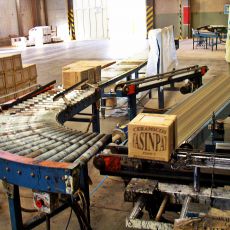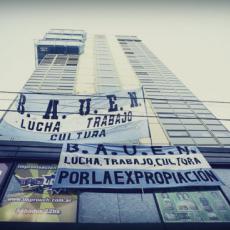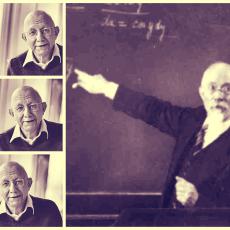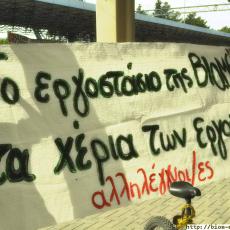Array
-
English15/08/111874-1943
Otto Rühle archive in English in the Marxist’s Internet Archives
TheoristsΌχιΝαιNoΝαι -
Spanish15/08/11
Paul Mattick (1904-1981), comunista de izquierda alemán.
Luego de una juventud de actividad comunista con los espartaquistas y el KAPD se mudó a los EE.UU., desde donde fue uno de los principales promotores del Comunismo de Consejos.
Archivo Paul Mattick en Marxists’ Internet Archives
http://www.marxists.org/espanol/mattick/index.htmTheoristsΌχιΝαιNoΝαι -
German15/08/11
Paul Mattick (1904-1981), deutscher Linkskommunist.
Während seiner Jugend im Spartakusbund und der KAPD aktiv, danach Exil in den USA, von wo aus er einer der zentralen Fürsprecher des Rätekommunismus war.
Archiv Paul Mattick auf Deutsch im Marxists’ Internet Archives
http://www.marxists.org/deutsch/archiv/mattick/index.htmTheoristsΌχιΝαιNoΝαι -
English15/08/111904-1981
Paul Mattick archive in Englisch in the Marxist’s Internet Archives
TheoristsΌχιΝαιNoΝαι -
Spanish15/08/11
Karl Korsch (1886-1961)
TheoristsΌχιΝαιNoΝαι -
German15/08/11
Karl Korsch (1886-1961)
Karl Korsch gehörte in der Novemberrevolution 1918 zu den Mitbegründern des Arbeiter- und Soldatenrats in Meiningen, 1919 war er zeitweise Mitglied der Sozialisierungskommission in Berlin, die jedoch ohne Ergebnis tagte. Im selben Jahr habilitierte er sich im Fach Jura. Seine juristische Bildung nutzte er dazu, wesentliche Impulse für die Rätedebatte zu setzen. Korschs Schrift "Was ist Sozialisierung? Ein Programm des praktischen Sozialismus." gilt bis heute als konsequenteste Ausformulierung rätedemokratischer Theorie.
Korsch war zunächst Mitglied der USPD, dann der KPD. Im Mai des Jahres 1923 nahm er an der Marxistischen Arbeitswoche teil, aus der wesentliche Impulse zur Entstehung der Kritischen Theorie entstanden.
Im Herbst 1923 war Korsch Justizminister einer kurzlebigen Koalitionsregierung von SPD und KPD in Thüringen und musste nach deren Absetzung zeitweise untertauchen, weil er die Bildung bewaffneter "proletarischer Hundertschaften" gebilligt hatte. Nach dieser prägenden Erfahrung eines gescheiterten Aufstandes rückte die KPD nach links, auch Korsch vertrat bis zu seinem Parteiausschluss 1926 eine "ultralinke" Position in der KPD.Korsch ging 1933 ins Exil und setzte seine Veröffentlichungstätigkeit fort, in den 1960er Jahren wurden seine Schriften neu entdeckt und gelten als Grundlagen für die Renaissance eines Neomarxismus in Westeuropa.
Texte von Karl Korsch auf Deutsch im Marxists’ Internet Archives:
http://www.marxists.org/deutsch/archiv/korsch/index.htmTheoristsΌχιΝαιNoΝαι -
English15/08/111886-1961
Karl Korsch archive in Englisch in the Marxists’ Internet Archives
TheoristsΌχιΝαιNoΝαι -
Spanish15/08/11
Anton Pannekoek (1873-1960)
Socialista y astrónomo holandés. Conformó el ala izquierda de los partidos socialdemócratas holandés y alemán. Alentó al movimiento de consejos obreros, y luego de la división del movimiento comunista, se alineó con su ala anti-bolchevique.
Archivo Anton Pannekoek en español en Marxists’ Internet Archives
http://www.marxists.org/espanol/pannekoek/index.htmTopicΌχιΝαιNoΝαι -
German15/08/11
Anton Pannekoek (1873-1960)
Anton-Pannekoek-Archiv auf Deutsch im Marxists’ Internet Archives
http://www.marxists.org/deutsch/archiv/pannekoek/index.htmTopicΌχιΝαιNoΝαι -
English15/08/111873 - 1960
Anton Pannekoek (2 January 1873 – 28 April 1960) was a Dutch astronomer and revolutionary. As a recognized Marxist theorist, Pannekoek was a main figure in the radical left in the Netherlands and Germany.
Pannekoek was best known for his writing on workers' councils. He regarded these as a new form of organisation capable of overcoming the limitations of the old institutions of the labour movement, the trade unions and social democratic parties. Pannekoek argued that the workers' revolution and the transition from capitalism to communism had to be achieved by the workers themselves, democratically organised in workers' councils.
"The old forms of organization, the trade union and political party and the new form of councils (soviets) , belong to different phases in the development of society and have different functions. The first has to secure the position of the working class among the other classes within capitalism and belongs to the period of expanding capitalism. The latter has to secure complete dominance for the workers, to destroy capitalism and its class divisions, and belongs to the period of declining capitalism. In a rising and prosperous capitalism, council organization is impossible because the workers are entirely occupied in ameliorating their conditions, which is possible at that time through trade unions and political action. In a decaying crisis-ridden capitalism, these efforts are useless and faith in them can only hamper the increase of self- action by the masses. In such times of heavy tension and growing revolt against misery, when strike movements spread over whole countries and hit at the roots of capitalist power, or when, following wars or political catastrophes , the government authority crumbles and the masses act, the old organizational forms fail against the new forms of self-activity of the masses.”
Browse the Anton Pannekoek Archive in English in Marxists’ Internet Archives.
Read suggested works of Anton Pannekoek in the links below:
TopicΌχιΝαιNoΝαι




